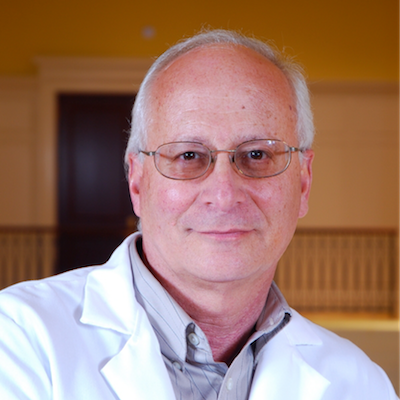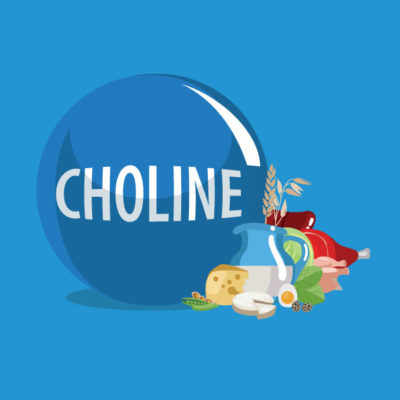steven_zeisel@unc.edu
704-250-5003
Steven H. Zeisel, MD, PhD
Professor Emeritus, Founding Director of the NRI
As the North Carolina Research Campus (NCRC) grows and more scientists and administrators move to Kannapolis, there is one face that has been here since the beginning. Founding NRI Director Steven Zeisel, MD, PhD, was a leader in this innovative venture before the first shovel hit the dirt. From the start, Zeisel was involved in building the dream of the NCRC, including its unique mission, novel approach to research, and distinguished team. Not only has he played an integral role alongside David H. Murdock in developing the vision of the Campus, he has also led the charge to seek scientific synergy between the best minds in nutrition research, through collaboration with the other NCRC organizations.
Under Zeisel’s leadership, this collaboration is the defining hallmark that will revolutionize the field of nutrition worldwide. Zeisel’s passion for the science of nutrition is evident throughout his distinguished career. He initially attended medical school at Harvard and completed his residency in pediatrics at Yale-New Haven Hospital. He earned his PhD in Nutrition from Massachusetts Institute of Technology in 1979.
After rising to the rank of professor at Boston University’s School of Medicine, Zeisel joined UNC-Chapel Hill’s faculty in 1990, becoming professor and chair of the UNC Department of Nutrition (the first department of nutrition in the country in both a school of public health and a medical school). In 1999, he was named Associate Dean of Research for the UNC School of Public Health. Later he began directing UNC’s Clinical Nutrition Research Unit (now called the UNC Nutrition Obesity Research Center). Subsequently, he was named a Kenan Distinguished University Professor of Nutrition & Pediatrics at the UNC Gillings School of Global Public Health and at the UNC School of Medicine in 2005.
Show MoreAs the North Carolina Research Campus (NCRC) grows and more scientists and administrators move to Kannapolis, there is one face that has been here since the beginning. Founding NRI Director Steven Zeisel, MD, PhD, was a leader in this innovative venture before the first shovel hit the dirt. From the start, Zeisel was involved in building the dream of the NCRC, including its unique mission, novel approach to research, and distinguished team. Not only has he played an integral role alongside David H. Murdock in developing the vision of the Campus, he has also led the charge to seek scientific synergy between the best minds in nutrition research, through collaboration with the other NCRC organizations.
Show MoreIn the News
Local Research Institute Boosts Economy through Critical Nutrition Discoveries
March 17, 2015 • Eleven faculty research scientists at the UNC Nutrition Research Institute (NRI) in Kannapolis currently have externally funded grants to support their work exploring individualized nutrition. These awards are significant not only for providing the means by which the NRI can advance its scientific discoveries but also for their economic impact in the Charlotte region.
NRI Scientist Achieves New Role
March 2, 2015 • Natalia Surzenko, Ph.D., studies the connections between nutrients and brain and eye development. Her work in this area has been as Research Scientist in the Zeisel lab since joining the NRI in 2013. In recognition of the excellence she brings to her research, Dr. Surzenko has been promoted to Research Assistant Professor.
Choline: An Essential Nutrient
Makes Babies Smarter, Keeps Memory Keen and Prevents Disease, Yet Most Americans Are Missing Out
Choline was discovered in 1862, but scientists did not fully understand its importance—or what foods contained it—for another 136 years. They thought we could make our own choline, much like we make Vitamin D from sunlight and cholesterol, but only women who still produce estrogen can make enough choline—and only if they have the right genes. Forty-five percent of child-bearing women have a genetic variation called a SNP (pronounced “snip”) that prevents them from turning estrogen into choline.
Bonsai Expo, December 6 and 7
Bonsai aficionados will converge in Kannapolis at the North Carolina Research Campus this weekend, December 6 and 7 for the second annual Winter Silhouette Bonsai Expo. The ancient art of bonsai–the word means to plant in a container–is sometimes best appreciated when...
Publications
2020
2019
2018
2017
Contribution of Dietary Supplements to Nutritional Adequacy in Various Adult Age Groups.
Trimethylamine N-Oxide, the Microbiome, and Heart and Kidney Disease.
Reduced brain volume and impaired memory in betaine homocysteine S-methyltransferase knockout mice.
Astronaut ophthalmic syndrome.


